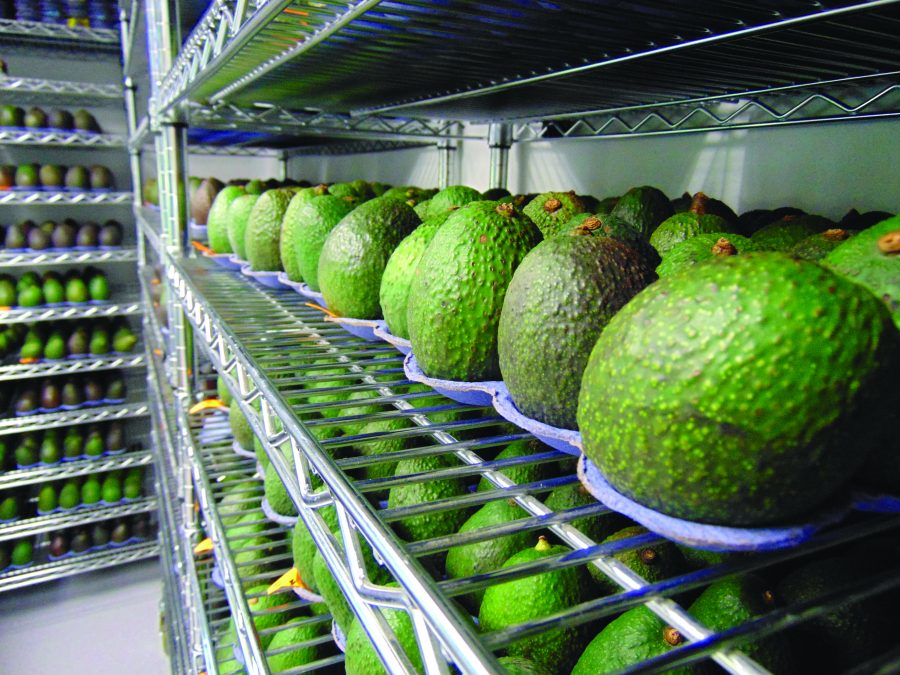Layoffs ‘largely not’ California-based, Apeel says
IN THIS ARTICLE
- Agribusiness Topic
- Jorge Mercado and pacbiztimes Author
By Jorge Mercado and pacbiztimes Friday, July 15th, 2022
Goleta-based Apeel Sciences will lay off an unspecified amount of workers and downsize its operations after years of continued growth that took it past a valuation of $2 billion in its last funding round.

In a statement provided to the Business Times on July 11, an Apeel spokesperson said the company is “working tirelessly to support those impacted during their transition.”
“Over the past 30 months of commercialization, we’ve gained valuable insight into how to best deliver plant-based protection to suppliers, retailers, and consumers and have determined that there are areas of our business where we have the opportunity to operate more effectively,” the company’s statement read. “We have made the difficult decision to streamline our operations in these areas to best position us to accomplish our mission to reduce food waste by sustaining our business long into the future.”
The employees subject to layoffs were notified July 11, Apeel said, “and in most cases the changes will be effective immediately.”
The company’s statement said it was not required to notify the state of California about the layoffs through a notice filed under the Worker Adjustment and Retraining Notification Act. The WARN Act requires companies to file a notice if they are laying off more than 50 employees in California, or shutting down an entire facility.
Jason De Turris, Senior Vice President, told the Business Times via email that the majority of those impacted were based outside of California and were spread across several departments.
Apeel had around 450 employees globally as of Feb. 25.
“Rightsizing our business means that we will be reducing our workforce in certain areas, but we will continue to invest in others. We have spent the last 18 months listening to our partners in the food system, learning from over 200+ customer engagements, and iterating our go-to-market strategy based on these learnings,” De Turris said.
Apeel said the employees who were laid off received severance packages, job placement support and other benefits.
The company was founded by UC Santa Barbara researchers in 2012, with a technology that extends the shelf life of fresh produce.
Apeel has raised $635 million in venture capital, from investors including Oprah Winfrey and the Bill & Melinda Gates Foundation. In its latest funding round of $250 million, in September 2021, the company was valued at more than $2 billion.
In February, CEO and co-founder James Rogers told the Business Times that Apeel had no plans to raise more capital in 2022. Rogers could not be reached for comment on July 11.
Since Apeel’s last funding round, the bottom has fallen out of the venture capital market. According to CB Insights, a global private equity group that conducts research on VC spending, worldwide venture funding reached $143.9 billion across 8,835 deals in the first quarter of 2022, down 19% from the previous quarter.
This has left many companies to rethink their long-term strategies, since capital will likely be harder to come by in the future.
Last year, Apeel was spending money on its first acquisition, when it bought ImpactVision, an imaging technology company based in San Francisco, for an undisclosed amount. Apeel also did not disclose whether it would keep ImpactVision’s workforce.
ImpactVision’s technology allows food suppliers to see inside crates and check the quality of fresh produce by collecting data on the ripeness, freshness, nutritional density, and other indicators of quality. That helps suppliers know the exact ripening window for each piece of fruit, so they can be sorted and shipped to the locations that will ensure retailers are getting the highest quality produce.
CFO Bill Strong did not answer the Business Times’ question in September about whether Apeel was aiming to acquire more companies in the future.
Though the decision was difficult, De Turris said, it will not impact the company’s continued mission going forward.
“This decision was made as a result of what we learned from our customers and our continued drive to fulfill our mission,” De Turris said.









